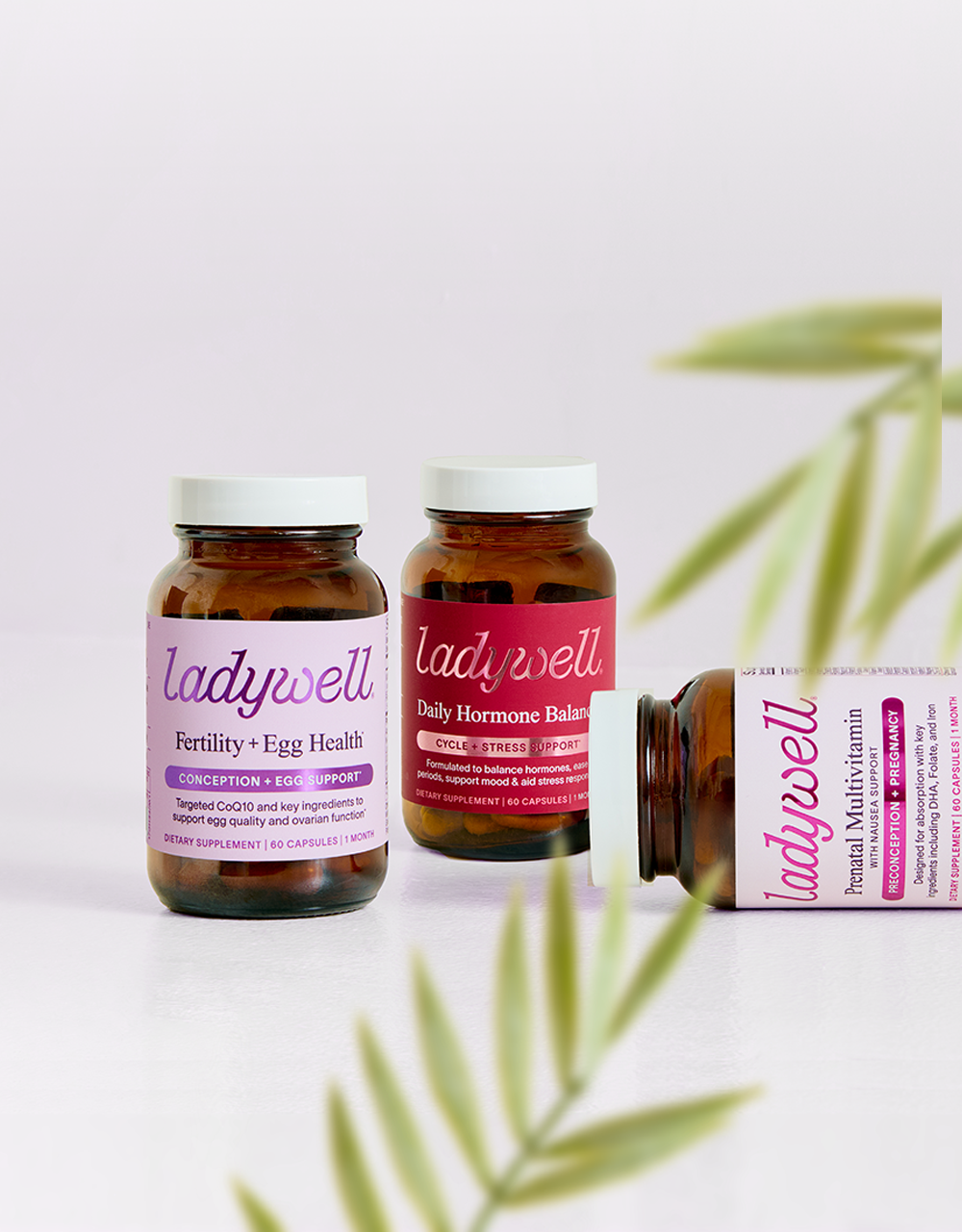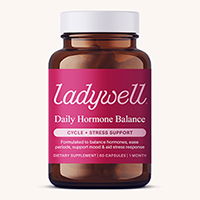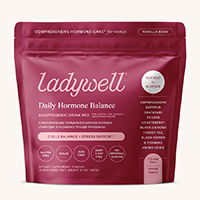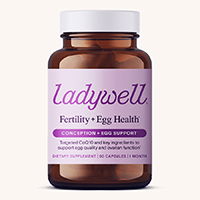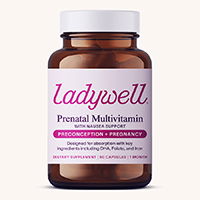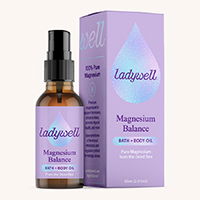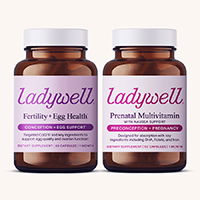As women age, many find that their PMS symptoms become more pronounced and challenging to manage. This natural progression, often linked to hormonal changes, can leave women searching for effective solutions that cater to their evolving needs. Understanding the connection between PMS and aging is crucial in navigating these changes with confidence and ease.
In this informative guide, we will delve into the intricacies of hormonal balance and explore a variety of natural remedies for PMS, effective PMS treatments, and women's health supplements designed to help manage PMS symptoms. With the right knowledge and tools, you can regain control and find relief, supported by expert advice and quality products that you can trust.
Understanding PMS and Aging
How PMS Changes Over Time
As women age, the experience of premenstrual syndrome (PMS) can evolve, often becoming more intense or presenting new symptoms. This change is largely due to fluctuations in hormone levels as women approach perimenopause. During this phase, estrogen and progesterone levels can become erratic, potentially amplifying PMS symptoms like mood swings, cramps, and fatigue. Additionally, stress, lifestyle changes, and overall health can play significant roles in how PMS manifests over time.
For some, the increased intensity of symptoms leads to a search for more effective ways to manage PMS. Understanding these shifts is crucial for adjusting self-care routines and addressing specific needs. Recognizing the signs of changing PMS allows for proactive management through diet, exercise, and possibly integrating women's health supplements. These strategies aim to restore hormonal balance and alleviate the discomfort associated with worsening PMS symptoms as women age.
Common Symptoms Experienced
With age, women may notice a change in the nature or severity of PMS symptoms. Common symptoms often include increased irritability, mood swings, and depression, which are linked to hormonal imbalances. Physical symptoms such as bloating, breast tenderness, and headaches can also intensify. Additionally, fatigue and sleep disturbances might become more prominent, impacting daily life and overall well-being. Cognitive effects, like difficulty concentrating or memory lapses, are also reported more frequently as women age. These changes are often influenced by hormonal shifts during the transition to menopause, affecting how estrogen and progesterone interact with the body's systems. Understanding these symptoms is essential for effectively managing PMS. This awareness can guide women in tailoring their approach, whether through lifestyle adjustments or incorporating natural remedies for PMS, to mitigate the impact of these symptoms and maintain a more balanced quality of life.
Connection Between Hormonal Balance and PMS
The link between hormonal balance and PMS is significant, as these fluctuations are primary drivers of PMS symptoms. Estrogen and progesterone, the key hormones in a woman's cycle, must maintain a delicate balance to ensure smooth bodily functions. Disruptions in this balance often lead to the physical and emotional symptoms associated with PMS. For instance, an increase in estrogen relative to progesterone, known as estrogen dominance, can exacerbate symptoms like mood swings, bloating, and headaches. As women age, particularly entering perimenopause, hormone levels become more unpredictable, potentially worsening PMS symptoms. Maintaining hormonal balance becomes crucial in managing PMS effectively. This can be achieved through lifestyle modifications such as diet and exercise, and the use of women's health supplements that target hormonal health. By understanding and addressing these hormonal shifts, women can better manage their PMS, leading to improved well-being and quality of life.
Effective Strategies for Managing PMS
Natural Remedies for PMS Relief
Natural remedies offer a viable approach to alleviating PMS symptoms, focusing on restoring hormonal balance and overall well-being. Dietary adjustments can be beneficial, such as incorporating foods rich in omega-3 fatty acids, magnesium, and vitamin B6, which are known to support mood regulation and reduce inflammation. Herbal supplements like Chasteberry, which helps balance progesterone levels, and Ashwagandha, known for reducing stress and anxiety, can also provide relief. Regular physical activity is another effective strategy, as exercise boosts endorphins, which can improve mood and decrease pain perception. Mindfulness practices such as yoga and meditation can reduce stress and promote relaxation, aiding in symptom management. Additionally, adequate sleep and hydration play crucial roles in maintaining energy levels and reducing fatigue. By embracing these natural remedies, women can find a holistic approach to managing PMS, enhancing their quality of life through more balanced hormonal health.
Dietary and Lifestyle Adjustments
Adopting specific dietary and lifestyle adjustments can significantly help in managing PMS symptoms. A diet rich in whole grains, fruits, and vegetables provides essential nutrients and fiber, aiding in hormone regulation and reducing bloating. Incorporating foods high in calcium and vitamin D, such as leafy greens and fortified dairy alternatives, can also alleviate symptoms. Limiting caffeine and sugar intake is advisable, as they can exacerbate mood swings and irritability. Instead, focusing on hydration and herbal teas can be beneficial. Regular physical activity, such as walking or yoga, helps release endorphins, reducing stress and improving mood. Additionally, maintaining a consistent sleep schedule supports overall health and hormonal balance. Stress management techniques, including mindfulness and deep-breathing exercises, further contribute to symptom relief. By integrating these simple yet effective dietary and lifestyle adjustments, women can better manage PMS, promoting a healthier, more balanced life.
Women's Health Supplements for PMS
Women's health supplements can play a pivotal role in managing PMS symptoms by addressing hormonal imbalances and supporting overall wellness. Supplements like Ladywell's Daily Hormone Balance, for example, combine plant-based ingredients such as Chasteberry, Ashwagandha, and Black Cohosh, which are known for their hormone-balancing properties. These ingredients help stabilize mood, alleviate cramps, and reduce bloating. Additionally, the inclusion of B vitamins and essential amino acids can enhance energy levels and support mood regulation. Supplements that contain magnesium and calcium can also be beneficial, as these minerals are linked to reduced PMS symptoms like irritability and water retention. When selecting supplements, it is important to choose products that are non-GMO and free from artificial additives to ensure safety and efficacy. Incorporating high-quality women's health supplements into daily routines can provide a natural way to manage PMS, improving well-being and promoting hormonal health.
Navigating PMS Treatment Options
Consulting with Healthcare Professionals
Consulting with healthcare professionals is an essential step in managing PMS effectively, especially when symptoms become unmanageable or significantly impact daily life. A healthcare provider can offer a comprehensive evaluation to rule out other underlying conditions that might mimic PMS. They can also recommend personalized treatment plans that may include lifestyle changes, dietary adjustments, or the use of specific supplements.
For some, prescription medications such as hormonal contraceptives or antidepressants may be suggested to help regulate hormones and alleviate severe symptoms. Additionally, healthcare professionals can provide guidance on the safe use of natural remedies and supplements, ensuring they complement any existing treatments. By working closely with a healthcare provider, women can gain insights into their unique hormonal patterns and receive tailored advice that supports their overall health and well-being. This collaborative approach empowers women to make informed decisions and find the most effective strategies to manage PMS.
Exploring Alternative Therapies
Exploring alternative therapies can be a valuable component in managing PMS, offering complementary approaches to conventional treatments. Acupuncture, for instance, is a popular therapy that can help alleviate PMS symptoms by balancing the body's energy flow, potentially reducing stress and improving emotional well-being. Herbal medicine, utilizing plants like evening primrose oil and ginger, is also frequently used to address hormonal imbalances and ease physical discomfort.
Aromatherapy, with essential oils such as lavender or clary sage, can promote relaxation and relieve tension. Additionally, practices like yoga and tai chi incorporate movement and mindfulness to enhance mood and reduce stress. These therapies emphasize a holistic approach, targeting both physical and emotional aspects of PMS. When considering alternative therapies, it's important to consult with a qualified practitioner to ensure safety and appropriateness. Integrating these options into a comprehensive PMS management plan can provide a broader range of relief and improve overall quality of life.
Building a Personalized PMS Management Plan
Creating a personalized PMS management plan involves tailoring strategies that best address individual symptoms and lifestyle needs. Start by tracking symptoms through a menstrual diary or app, which helps identify patterns and triggers. This data can guide the selection of specific dietary changes, such as reducing caffeine and sugar, and increasing intake of nutrient-rich foods. Incorporating regular physical activity, like walking or yoga, can mitigate mood swings and improve energy levels. Additionally, mindfulness and stress-reduction techniques such as meditation or deep-breathing exercises can provide emotional relief.
Supplements and herbal remedies should be chosen based on specific needs, such as magnesium for cramps or Chasteberry for hormonal balance. Consulting with healthcare professionals ensures that chosen methods are safe and effective, and any combination of treatments is appropriately balanced. By focusing on personalized strategies, women can manage PMS more effectively, leading to improved well-being and a more balanced lifestyle.
Disclaimer
The information provided in this blog is for educational purposes only and is not intended as a substitute for professional medical advice. Always consult a qualified healthcare provider before making any changes to your health regimen, especially if you are pregnant, nursing, or taking any medications.




